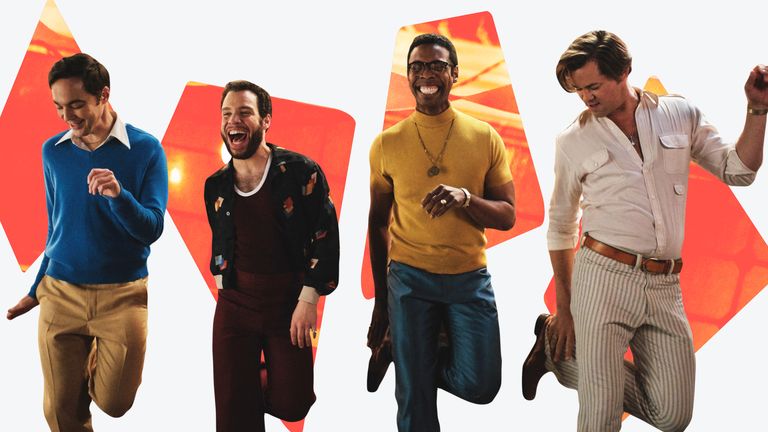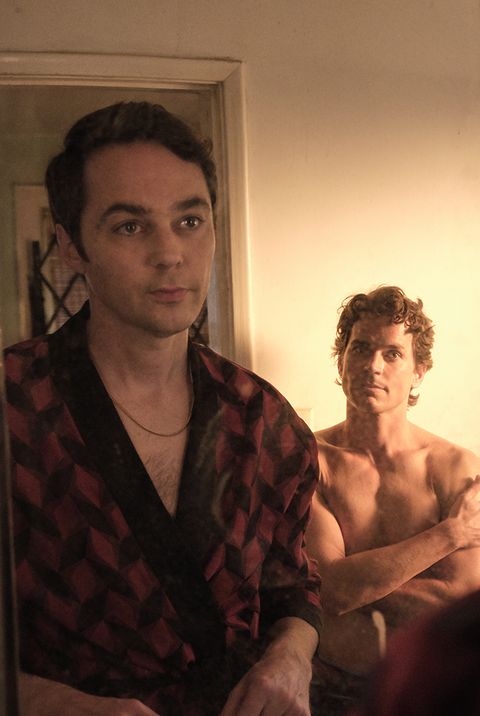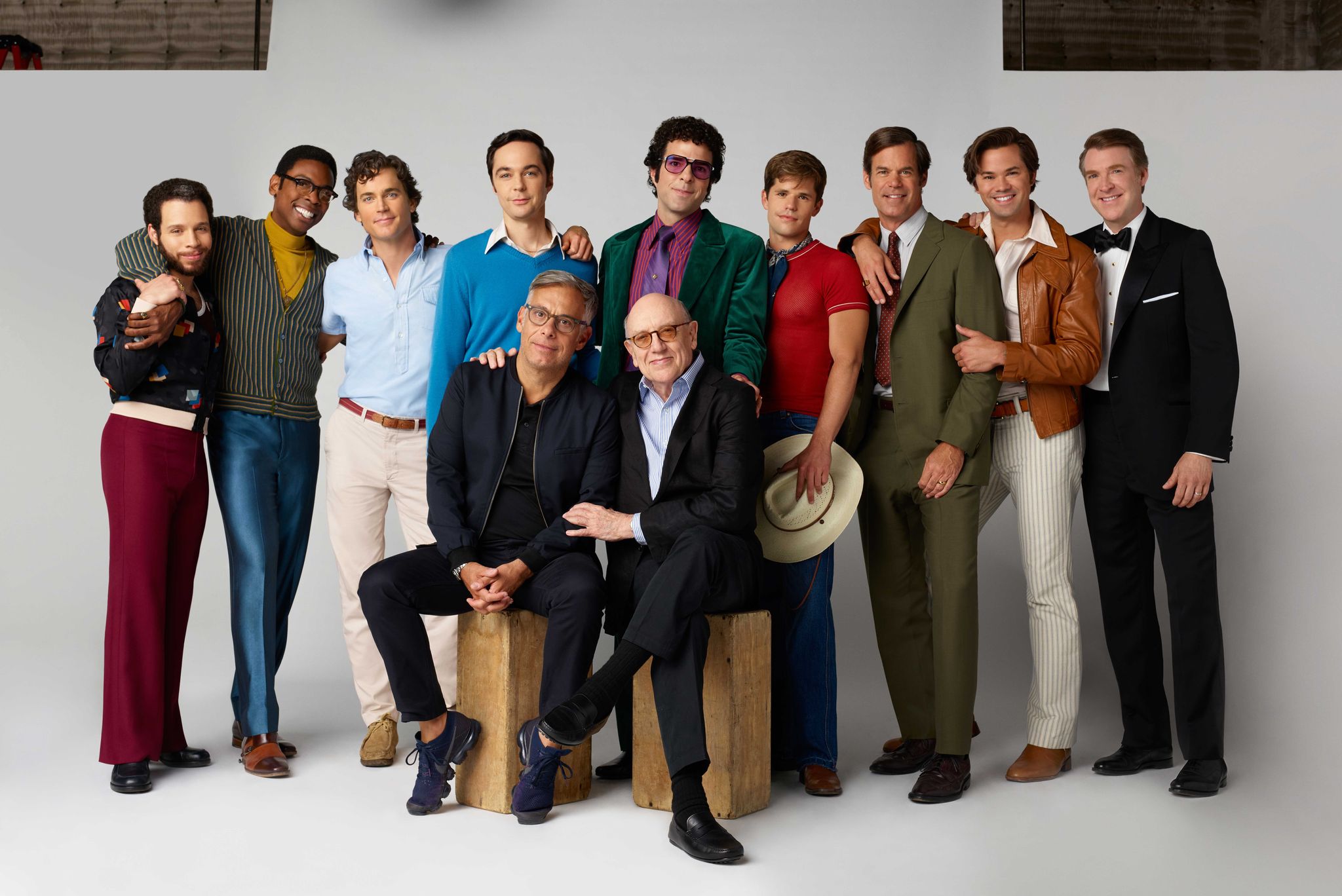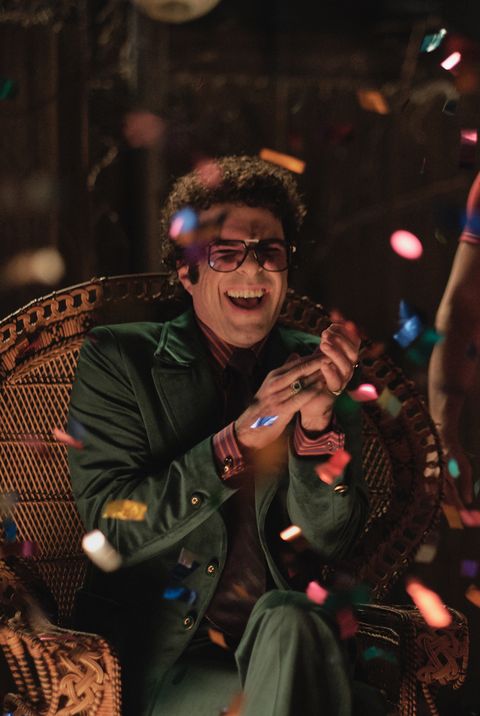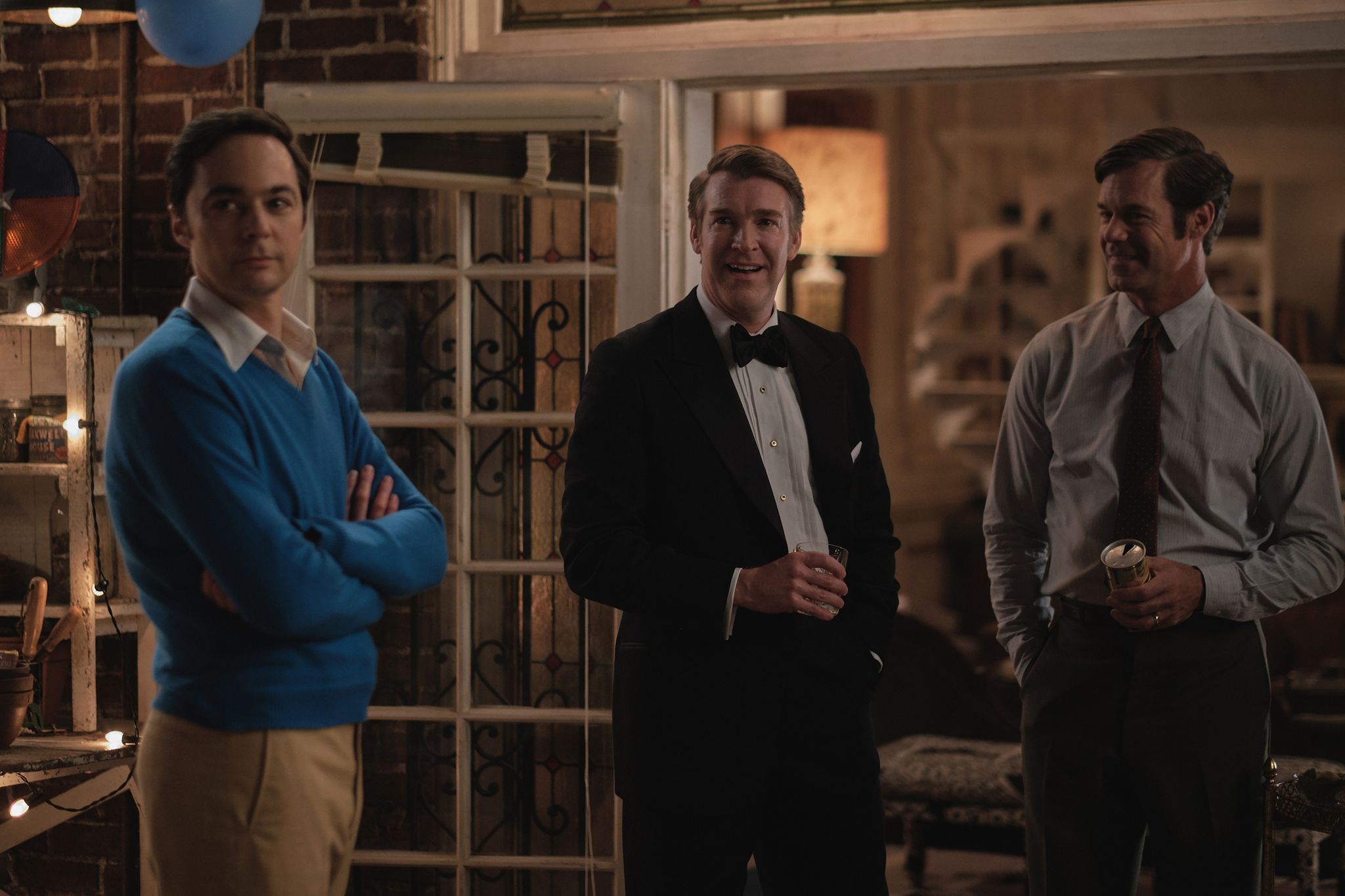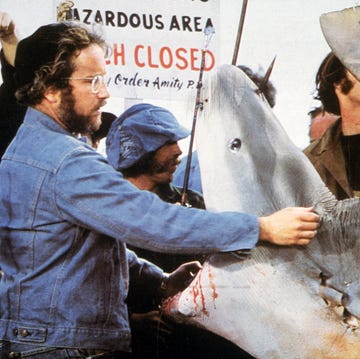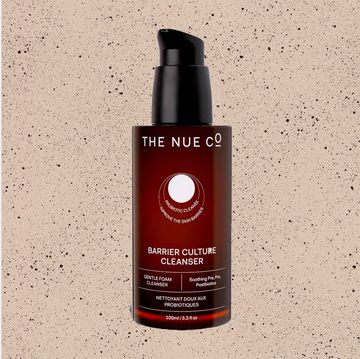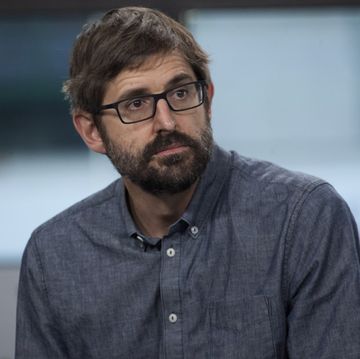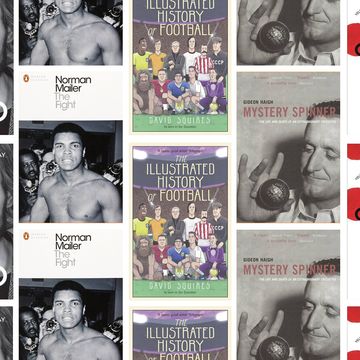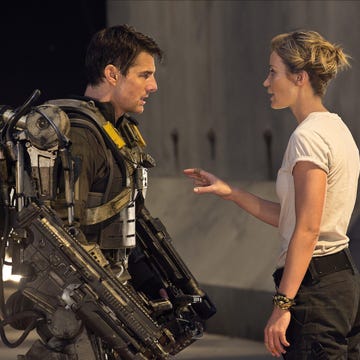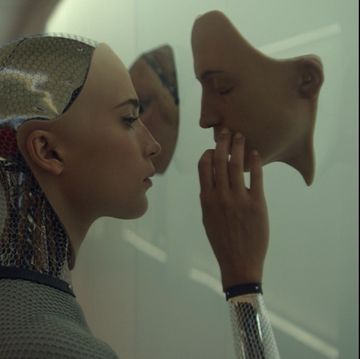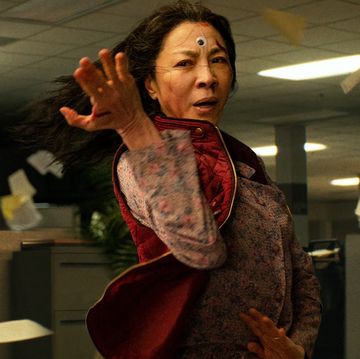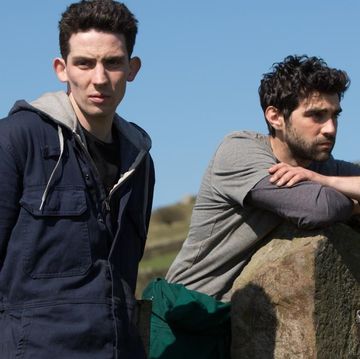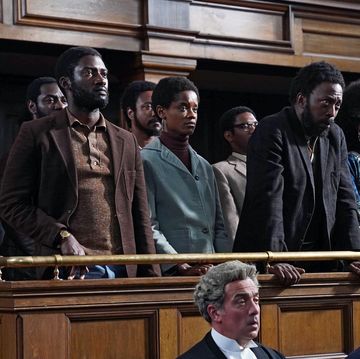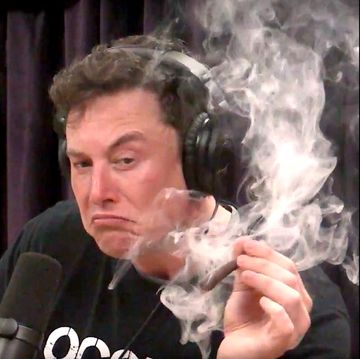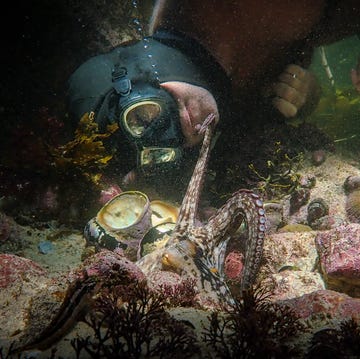"Oh my God, what have I done? Oh my God."
As The Boys in the Band hurtles into its third and final act, these words, delivered by a stammering, broken man, ache like a root canal without anaesthetic. Here we see Michael, a collapsing star orbited warily by eight men (sort-of friends, mostly gay, in the gay-unfriendly year of 1968), fall apart in a way that provides the film's final thrust. It is a scene irradiated by pain.
It also makes for uncomfortable viewing. The Boys in the Band is an artefact of a time in which the very idea of queerness was in its legal infancy, and those who identified as such were excluded from society at large. These matters weren't decent in 1968. So, when production assistant-turned-playwright Mart Crowley set about crafting a chamber play that depicted real gay characters inspired by real gay men, the pushback was rigid.
Finding actors open to playing gay men was "nearly impossible" Crowley told SFGate in 2002. What's more, theatres and producers were just as reluctant to get involved in something so unapologetically queer; the play's title was a reference to the patron saint of gay icons, Judy Garland, whose beleaguered Vicki Lester in 1954's A Star Was Born is told "you're singing for yourself and the boys in the band." But, after a successful two year run off-Broadway, The Boys in the Band was deemed a success – so much so that it spawned a London transfer, further productions, and a big screen adaptation in 1970.
In 2018, The Boys in the Band was revived in New York by Joe Mantello, an actor-director who was among the original Broadway cast members of another seminal gay text, Angels In America. In an echo of 1970, Mantello has brought his stage production to the big screen once again, with the 2018 run's cast reprising their roles for a glossy, Ryan Murphy-produced Netflix movie.
With 50 years distance from Crowley's original Upper East Side setting, The Boys in the Band arrives with new baggage. Despite history's slow march to social liberty, and the equalising rights of today, this is still an inherently radical – and relevant – piece. "The film is a cautionary tale of the cost of oppression: it's not just some deficiency of character of nine particular people that didn't quite measure up," says Mantello. "They're products of their time. And while it's our responsibility to stand up and make ourselves known, it's the world's responsibility to respond with humanity, and a lot of those rights we've gained are in real danger. It's important to keep an eye on that to understand The Boys in the Band." Who, unsurprisingly, are all oppressed peoples politically, but personally too. And it's this undercurrent of frustration and rage that causes the psychodrama to hit boiling point as several already loose threads begin to fray.
The setting: a New York apartment, where Michael (Jim Parsons) is hosting a birthday party for supposed friend, Harold (Zachary Quinto). But the arrival of an uninvited guest from Michael's college days – Brian Hutchison as Alan, a suburban salaryman – throws a potentially closeted cat among the pigeons. He is an outsider, a stranger, a self-declared straight man (despite ongoing accusations otherwise), and thus a possible danger to men who are forced to safeguard their own socialising from a society stacked against them. As drinks are drunk and the insults grow fangs, Michael suggests an emotionally charged parlour game: as guests call and confess to their one true love, The Boys in the Band descends into a character study of despair and subjugation set on the eve of the Stonewall Riots. Various addictions don't help matters at the Beefeater-soaked soiree.
Crowley's play spotlights the trauma of the gay experience and has always polarised audiences. Though many applauded the unapologetic depiction of queer lives, others found its unrelentingly bleak. ("[It] does nothing more than exploit its... sincerely conceived stereotypes," said a 1970 New York Times review of the play in relation to its first film adaptation.) But staging misery was the playwright's mission all along. When asked about this criticism, Crowley said in an interview to CBS Sunday Morning "well, there wasn’t anything positive [about the gay experience] when I wrote the play."
Which could make it a time capsule; a play that feels more like historical re-enactment than reflection of the times in which it arrives. But Mantello contends that The Boys in the Band is multi-layered, as much about hardship as it is friendship. "I'd like to think that it's not just centred on sadness. When I look at the original film, which is quite brilliant and holds up, it's a tough film, that film is a punch in the gut," the director says over Zoom. "I think with the benefit of historical perspective, knowing that the Stonewall Riots were just around the corner, it helps contextualise where that rage comes from, where the rage in that room comes from. It helps to mitigate a little bit the stigma that this is just about self-loathing."
It would easy enough to just see unbridled self-loathing as Michael collapses in a fit of wails and belly sobs. But The Boys in the Band wades through the tears to enter the duct, to recognise that this self-loathing erupts from a ruptured sense of self. These are not just sketches of "wretchedly miserable" gay men. They are real gay men, trying to live authentically, and this, arguably, is the film's central question: how does one accept their true self when their true self is unacceptable? "There was a cost in 1968 for living authentically; these guys couldn't do it, it was illegal, it was a psychological affliction," says Brian Hutchison, who plays straight man Alan. "You could've lost everything."
Emory is the one party guest who seems to take that risk. An interior decorator armed with an oversized Spanish fan and metronome-like hips, Robin de Jesús plays him with unapologetic flamboyance, which is both freeing and caging. He has unshackled himself from the repression of heteronormative conditions, but this very behaviour shackles him in the eyes of peers: "Who would want you?" Michael sneers at a silently weeping Emory, as the film starts its descent into darkness. "Authenticity is something that all people suffer from, but in gay culture specifically you're so policed," says de Jesús. "You're told to behave in a certain way, the more masculine you act the more you'll be loved and appreciated for that. It becomes a currency. I think that's the beauty of Emory and that's what's so radical about him existing in 1968, because no one else wrote a character so brave or openly gay. Only Mart could do that." When Emory refers to his brethren as 'she', and flutters his eyelashes at the visibly uncomfortable doorman of his apartment block, he is not only embracing his true self, but broadcasting it – an act made all the more essential by both the character and de Jesús's lineage. "My Emory happens to be Puerto Rican from New York City; we are a proud people, that is a part of our culture, and the idea of being ashamed of who we are, we have a lot of tools for that. And I also think that this part of his Latin identity only adds to him being brave and courageous and authentic." Emory doesn't need your acceptance.
The same cannot be said for the other guests. To varying degrees of repression, most, if not all, are failing to balance their true selves with the conditions set by a hostile world. Larry, played by Girls' Andrew Rannells, openly indulges in many sexual encounters, much to the chagrin of his exhausted on-screen boyfriend Hank (who, coincidentally, is played by Rannells' real life boyfriend, Tuc Watkins). Disciplined and undemonstrative, Hank has left an all-American, nuclear family to try and live authentically. But even then, removing himself from a traditional setting does not allow a release.
"Hank isn't intentionally holding back who he is, but he pushes it aside because it would betray who he is to society at large," says Watkins. It's a struggle to which the Desperate Housewives alum can personally relate. "I personally was really afraid of embracing something other than masculine myself when I was growing up, and Hank wasn't able to live as honestly or as fearlessly as Emory, and I wasn't able to do that when I was younger."
Even when the characters do set out on a journey of self-improvement, much like Matt Bomer's heavily-medicated Donald, the road ahead is uncharted. "He's looking for a horizon that really isn't there yet. There's nowhere for him to look for an example of how to just be in a healthy way," says Bomer. "He wants to make choices that he thinks are the best for himself even though they may not be. He wants to get away from the city, but he ends up moving in with his parents who are really his greatest source of pathos. He wants to go have a good time, but he's throwing himself right in the middle of the viper's nest. He's doing what he knows as part of a generation of men that didn't have role models to look to." The result is a man who seems stuck between too worlds; too jaded to be his old self, but too inexperienced to find a way into his future.
Oppression is not a set menu. As the film's sole Black character, Bernard – gracefully and gut-wrenchingly played by Ryan Murphy regular Michael Benjamin Washington – faces an even greater double-bind of injustice. His race comes under fire, again, from a scornful Michael. He tearfully recounts his first love with the son of his mother's former employers; an ambiguous friendship that, by the joy of underage drinking, tips into a single night of passion that Bernard cannot forget. "But he never knew I was alive," he mourns through drags of a cigarette, his words a wider reflection of a white society in the Sixties that could only see, as Washington puts it, "three-fifths of a human being". Bernard's story makes you sit up – and is alarmingly prescient. "What we're seeing, like with Breonna Taylor, is that we're not as far away from 1968 and being hung from a tree – and nothing happens," Washington says. "So what happens in The Boys in the Band for me, is how do you find that sense of community? And people who do actually love you – we have a backstory, we've gone to Fire Island, we've had this sense of a tribe – but it's still a racial divide and that's something that'll make this movie timeless 50 years from now, unfortunately. We're still a young country that has a lot to learn."
Bernard's pain, worn so openly and emotionally, is a story that demands its spotlight, now more than ever, with Washington, himself a playwright, currently working on projects that focus on Black history. "Bayard Rustin taught us how to do civil disobedience and peaceful protest – all of it's been laid out, we just don't tell those stories," he says. "Therefore if you don't tell people what happened before, there's no way to correct it. You can't course correct what you choose not to see."
However, though trauma and authenticity are key components, the cast go to great pains to highlight other themes that are just as important: community, and the second families we choose to build – an intrinsic part of the queer experience, says de Jesús. It's also a film that's very, very funny, loaded with the sort of caustic wit and barbs that have come to be known in gay modern parlance as 'a read'. Zachary Quinto's birthday boy Harold, for instance, receives a pair of bejewelled kneepads as a gift, as well as a sex worker, in the form of Ratched star Charlie Carver, as the nice-looking-but-dim 'Cowboy'. We never learn his true name.
Some of the film's most memorable exchanges are shared between the two, with Quinto's Liberace-on-Quaaludes proving a misanthropic foil to the bright-eyed optimism of his much younger, fully remunerated romantic interest. It seems the characters with the most to laugh at are the men who are at most at peace with themselves, or those that fit a certain ideal. "I think Harold is a character who has really explored the depths of his own self-loathing to a degree that he's able to transform it into a sort of power," says Quinto. "He gives almost absolutely no care to what people think of him, and yet he has such a connection to what he thinks of other people." This fey executioner wasn't dreamt up from thin air either; Harold was based upon Howard Jeffrey, the real life frenemy of the playwright. "I feel so particularly grateful to have had Mart as part of the experience of the play and the film to hear stories of Howard, with whom Mart shared this kind of acerbic relationship that was both fulfilling and also really challenging to them in certain ways."
And, for Cowboy, pure naivety dissolves the jibes thrown his way. "He doesn't get half of them," withers Quinto. But it's hard to overlook the constant fixation with his body and beauty and masculinity; a Tom Of Finland paragon that is the source of much ogling and much envy. "I think it might have something to do with the lie that's told to gay men about them somehow lacking masculinity, or masculinity enjoying a limited series of definitions available and gay men not being able to step into any of these definitions," says Carver. "Cowboy fits a hyper-sexualised, hyper-masculine, youthful mould. I can certainly speak to my own experience: being all of that eludes me, and I've been told it'll forever elude me."
The Boys in the Band is unafraid to delve into the subject of gay sex: honest depictions and discussions of which remain a taboo in modern cinema. It ignores the well-versed conservative inkling that private lives should be 'kept private'; in one scene, we see a flashback of Larry and Donald pinning one another to the wall of a bathhouse. In another, the beginnings of a moonlit love scene between Larry and Hank. It signals a clear departure from the 1970 original, which chose to lean on the soft power of inference. Writing in 1995, academic Joe Carrithers argued that it took obvious pains to enable "a 'comfortable' experience for straight viewers." Mantello's version does no such thing. The implicit is made explicit. Of these fleeting but frank depictions of gay sex, the director remains steadfast. "I think it would've been cowardly not to have included it. In fact, going back to the Broadway production, the very last image the audience saw onstage was those two men beginning to make love, and that was important to me as a sort of embodiment of some queer spirit," the director says. "It was a yes: this is what you're going to see, it's going to go on and you're going to learn how to love. It would've felt wrong not to show that."
The Boys in the Band will no doubt be classed as another weapon in Netflix's growing arsenal of well-made, well-meaning films. But unlike other movies that paddle in the mainstream, this tale is unashamedly, unflinchingly, refreshingly queer. Gay stories are increasingly more common, but few refuse to fully cater to the comforts of a straight audience. To witness a crumpled, dejected Michael is important – no, essential – in understanding the milieu of gay men, whether they be in 1968 or 2020. "I think he knows who he is, and there's a part of him that hates it and he wishes to God that he could be anything else," says Cooper. "The beauty of the film is that it's connectible for any audience: gay, straight or anything, because that's what it is to be a human being, learning to love yourself and accept all parts of yourself. And until you do, there will always be a part of you that can't fully let other people in. It's a struggle that continues for everybody." This question one can ask of themselves is an uncomfortable one.
And, though Michael's pain seems to partially dissipate, it still hangs in the air as the credits roll. You, the audience, are left knowing that the gay experience can still be just as painful some 52 years later. Constant hoping and wishing and shapeshifting cannot, and should not, change the unchangeable. We are who we are. But Mantello, and indeed Crowley, who sadly passed away earlier this year, both know that pain doesn't only just summon more pain. It so often preludes a metamorphosis too, where skeletons outgrow their closets to inhabit a brighter, lighter body and being. Just a few months after this fictional failed birthday party, the real life Stonewall Riots pushed the gay rights movement from a crawl into a walk, its head held high. For Bomer, then, this pain, Michael's pain – and that of Emory's, Donald's, Harold's, Cowboy's, Alan's, Bernard's, Larry's and Hank's – is a growing one. "The piece has taught us about the moment right before rebirth and progress. You look at the moment of birth, and it's painful and confusing and disorientating," he says. "My hope is that, right now, we're at the birth of something new. I’m going to choose to remain optimistic and hopeful about the horizon, because I’d like to hope we’re about to birth a time and a world that’s better for all of us."
The Boys in The Band is available on Netflix now
Like this article? Sign up to our newsletter to get more delivered straight to your inbox.
Need some positivity right now? Subscribe to Esquire now for a hit of style, fitness, culture and advice from the experts
